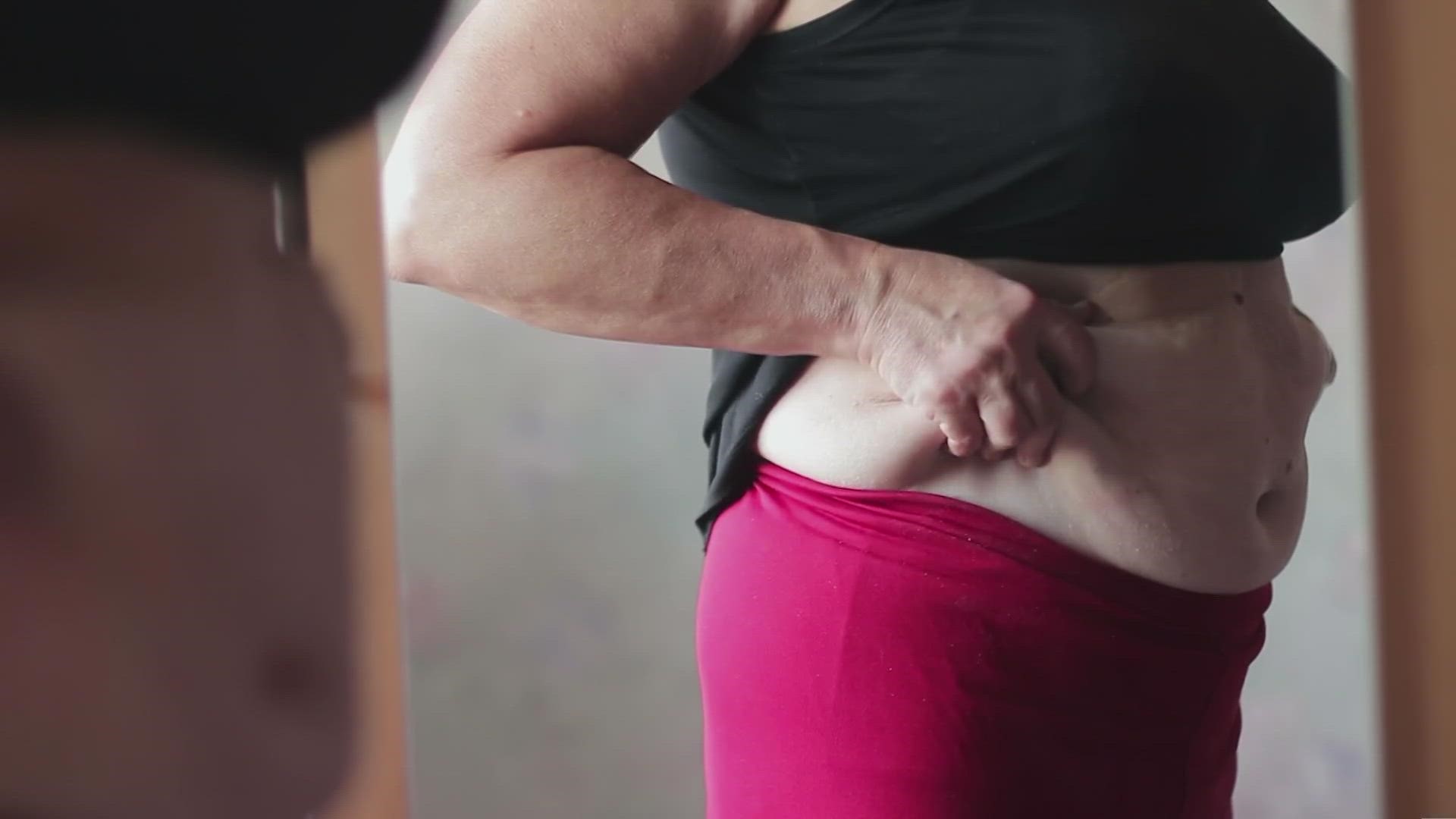NEW ORLEANS — It can be frustrating as women see their clothes no longer fit as they move into middle age.
And even more so when diet and exercise don't seem to help, and you feel lethargic and unmotivated.
Doctors say there is help.
Think about increasing hormones at puberty. They completely change a girl’s body, from straight, to curvy. Hormones cause fat to go to the chest, hip, and buttocks areas.
Now think about that in reverse. At menopause, the ovaries decrease the production of hormones.
When asked if she noticed her body changing or gaining weight at menopause, Christi Cass replied with a big laugh, “Oh Dear Lord, yes! And I just started gaining weight, the body composition changing.”
At 54 Cass is a busy, energetic entrepreneur and marketing director, but a few years ago, menopause made her miserable in body, mind and spirit.
“I had no energy, because I feel like I lost my brain. Really, it was just flat. I was always a pear (shape). I always had the bigger hips, bigger thighs, all of that. Never had a stomach. Holy cow, now I have a stomach,” she lamented.
So, Christi sought help from an advanced gynecologist and hormone replacement expert Dr. Stefanie Schultis in practice in Covington.
“Mood changes, worsening of anxiety, worsening of depression, weight gain, even in those people working out consistently, and that's very frustrating for them, fatigue, decrease in sex drive, decrease in sexual pleasure,” Dr. Schultis gave a list of symptoms.
Dr. Schultis said there are short-term and long-term effects to your health without your estrogen, progesterone and testosterone, yes the male hormone testosterone, all made by the ovaries.
She says without hormones there is faster loss of bone, muscle and brain;
faster formation of plaque clogging the arteries. In addition, all the skin and genitals become more lax, with more urinary infections, and fat accumulates in the dangerous area, around the waist.
“It's the fat around the liver. It's the fat around the kidneys, the intestines, and that's very unhealthy fat, and we know that starts accumulating more with the lack of estrogen, and that leads to insulin insensitivity, and that leads to potentially fatty liver,” she said.
She says estrogen improves your metabolism, and testosterone preserves your muscle and energy, all leading to burning more calories, and not only having the energy to work out, but seeing results when you do.
“A lot of studies are actually showing this now. You can't ignore the menopausal transition, and the hormonal changes that occur as a time for significant weight gain for some women. Reintroducing estrogen back into a woman's life actually helps to stop that fat redistribution,” said Dr. Jennifer Brunet, Section Head of Ochsner Baptist OB-GYN.
Dr. Brunet says replacing testosterone is also important.
“Not only does it help their mood, and it helps a lot of times their marriage and relationships, but it's going to increase their lean body mass. By increasing your lean body mass, you're increasing your metabolic rate,” said Dr. Brunet.
"The testosterone is the bomb. Just saying. That first month I was like, ‘Holy cow! Girl on fire! Christi is back. Let's rock the world,’” said Cass about getting HRT.
Christi gets non-oral, bioidentical HRT from Dr. Schultis. It’s a tiny implant under the skin that slowly delivers hormones to her blood like her ovaries used to. She also treats men with andropause and says they see the same fat redistribution benefits from HRT.
Dr. Brunet notes that the added benefit of HRT after menopause is hormones restore that drop in brain chemicals responsible for feeling pleasure, satisfaction and motivation, making you feel like getting off of the sofa and moving.
“Is it a cure-all? Is it nature's wonder medicine? No, but it definitely can assist women in achieving their weight loss goals,” added Dr. Brunet.
Dr. Schultis adds that unfortunately the biggest hormone study was done more than 20 years ago, and misrepresented the association of hormone replacement with the increased risk of breast cancer.
She says there was never a significant increase. She encourages a conversation with a medical doctor who specializes in HRT about your personal medical history.
And it’s important for the doctor to get regular blood level results to know the right dose.
► Get breaking news from your neighborhood delivered directly to you by downloading the new FREE WWL-TV News app now in the IOS App Store or Google Play.

